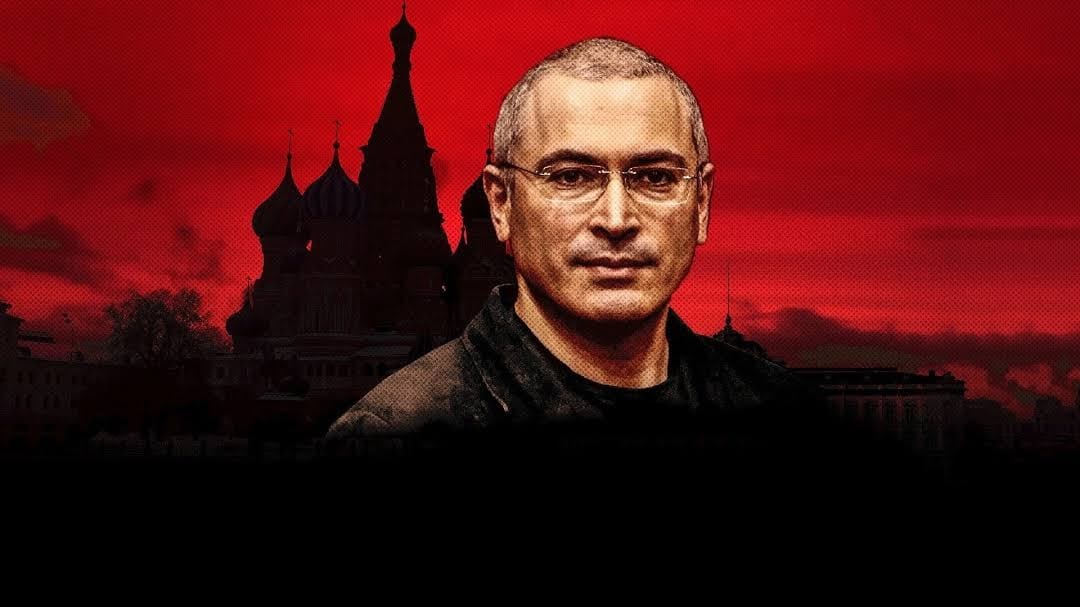Mikhail Khodorkovsky is not an easy man to like. While there’s an argument to be made that he is charming, the rest of him is nothing short of reprehensible.
A former Wild West capitalist, Khodorkovsky made his billions by swindling the poor and uneducated, creating an empire out of the ashes of the former Soviet Union. In Citizen K, the new documentary from Alex Gibney, Khodorkovsky proudly explains his methods of leveraging hunger and fear to his favor. Through these actions, he created a brotherhood of oligarchs that controlled more than half of Russia’s economy. It was by the hand of these people that Vladimir Putin rose to power; a station he hasn’t relinquished in nearly two decades.
Naturally, Putin betrays his former compatriots and sends Khodorkovsky to jail. Sentenced for tax evasion to thirteen years in a remote gulag, Khodorkovsky becomes an example and victim to the political power plays he once operated. In prison, he claims, he turned his life around and now exists to combat Putin and save his country.
Anyone can see that the latter part of that is nonsense, even if it makes for a compelling story. But it should be made clear, because Gibney doesn’t, that Khodorkovsky is not a hero. He’s a villain who was caught and is now using newfound connections for his revenge. Even as he happily writes his myth of the wanderer who returned from the wilds like Solzhenitsyn in his day, the irrefutable facts speak for themselves.
Gibney knows this, so despite focusing on Khodorkovsky as his main subject, a good portion of Citizen K is spent recapping everything that happened once the Soviet Union collapsed. The 1990s opened up an influx of capitalist endeavors never before seen in Russia. Violent crime escalated rapidly, as gangsters tried to outdo each other in buying up property and businesses. After minuscule attempts at formalities were exhausted, violence reached a fever pitch as people began filming executions from their living room windows.
So how did a nobody from the KGB rise through the ranks of Russian politics, and into total control of the nation? Citizen K is uncomfortably vague about the details. Khodorkovsky knows more than he is telling, and Gibney doesn’t push him for more. Instead, Khodorkovsky and the film drop the occasional tidbit to keep us salivating, everything else is kept close to the chest. Knowing his precarious position as living on borrowed time, Khodorkovsky won’t play out his hand just yet. It creates an intriguing sub-documentary about the things it doesn’t cover.
It doesn’t make Citizen K a lesser documentary, but it does bite off more than it can chew. A wild montage covers some thirty years of Russian history, with no single villain ever fully materializing. Leaving the whole situation unnerving. We’re comforted by the idea that everything begins and ends with Putin, who is a terrifying leader of an equally terrifying state. But it all feels too neat. After all, even Khodorkovsky admits that his ascension came at the cost of many others.
If anything, Gibney has discovered an entire economic rabbit hole in his digging. Russia appears as an endless abyss filled with mysteries, lies, and betrayal; something that a single documentary cannot cover.
Despite the occasional lack of focus, Citizen K is a compelling argument against a pervasive system. It’s a warning of what happens when billions of dollars become centralized to one individual, and how control of monopolistic industry creates dangerous oligarchies that are impossible to destroy.













